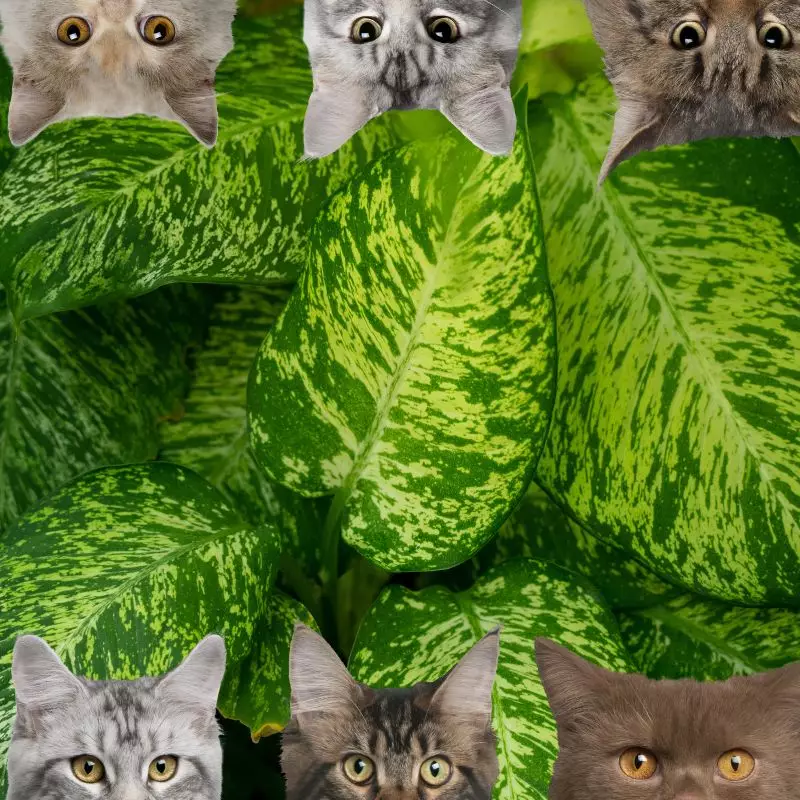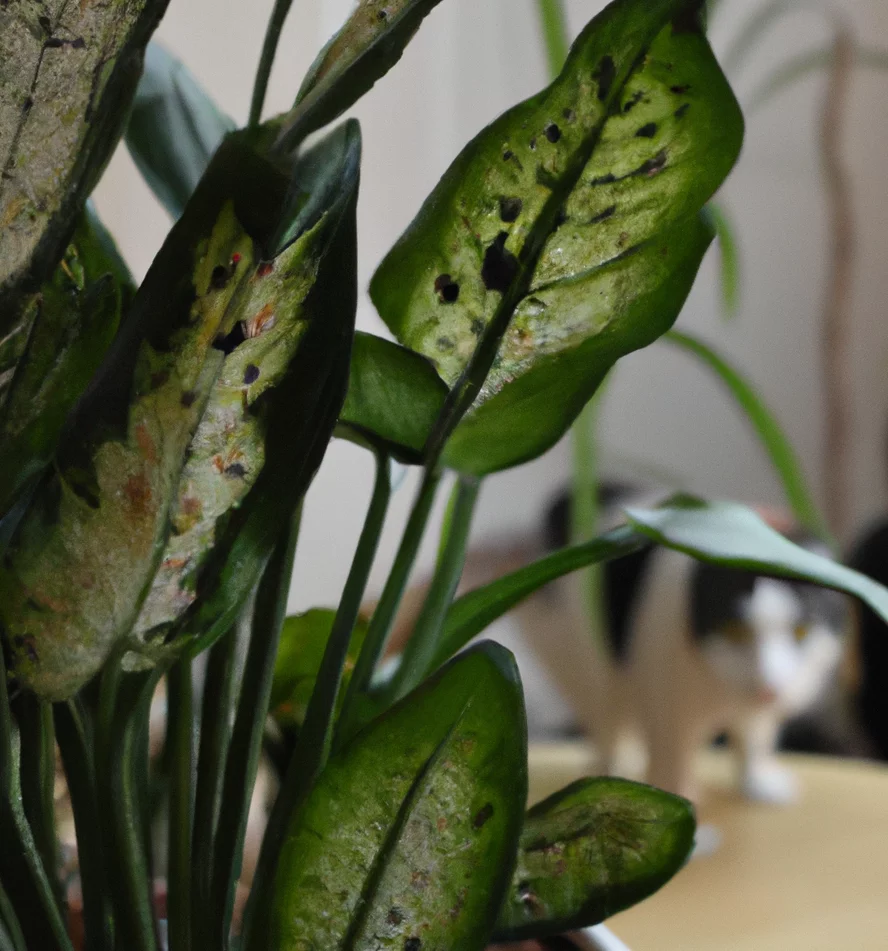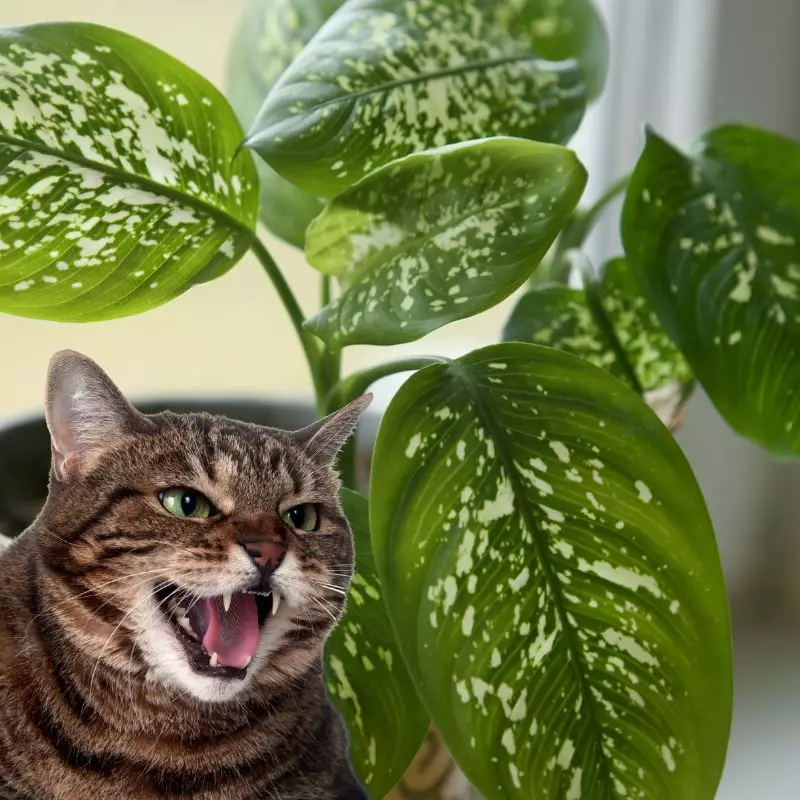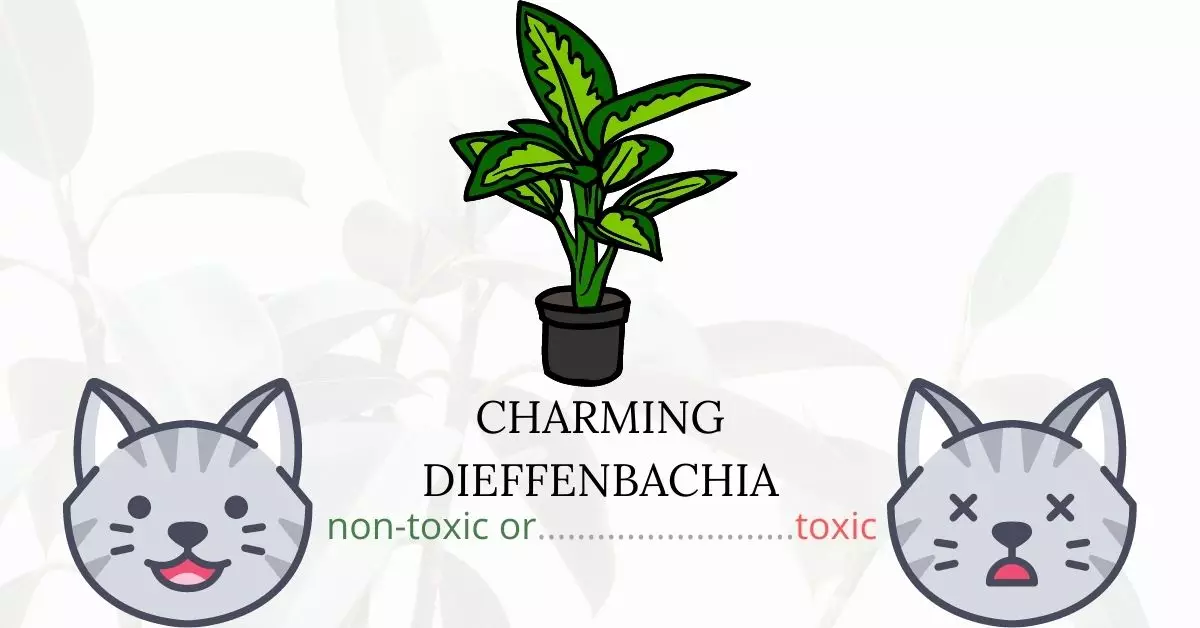Yes, Charming Dieffenbachia, also known as Spotted Dumb Cane, Giant Dumb Cane, Tropic Snow, and Dieffenbachia, is toxic to cats. This common houseplant contains insoluble calcium oxalates and proteolytic enzymes that can pose serious risks to cats when ingested. Consumption may lead to symptoms such as oral irritation, pain and swelling of the mouth, excessive drooling, and vomiting in felines.
This article was crafted in collaboration with a team of experienced DVMs (doctors of veterinary medicine). Through their invaluable insights, we can offer readers accurate and up-to-date information on the potential risks of various plants, particularly the Charming Dieffenbachia in this context. Our research also encompasses findings from high-authority websites such as ASPCA and PetMD to ensure comprehensive coverage on every plant’s effects on our feline friends.
Clinical Signs of Charming Dieffenbachia Poisoning in Cats

When cats come into contact with, or worse, ingest parts of the Charming Dieffenbachia plant, they may exhibit certain clinical signs due to the toxic compounds present in the plant. Understanding these symptoms can aid in early detection and intervention:
- Drooling: The immediate unpleasant and burning sensation in the mouth caused by the insoluble calcium oxalates in the plant often results in excessive drooling. This is the body’s natural response to rid itself of the harmful substance.
- Oral Discomfort: The proteolytic enzymes in the dieffenbachia can break down proteins in the mouth’s tissues, leading to a stinging or burning sensation. This discomfort can be evident if your cat frequently rubs its face or seems to be in distress.
- Pawing at the Mouth: This is a clear indicator of oral irritation. Cats tend to paw at their mouths to alleviate the irritation or pain caused by the plant’s compounds.
- Vomiting: The ingestion of dieffenbachia can irritate the gastrointestinal tract. As the body tries to expel the ingested toxic elements, vomiting can be a common symptom.
- Loss of Appetite: Due to the discomfort in the mouth and throat, and potential nausea, cats may avoid eating. The painful sensation can deter them from consuming food.
Should you observe any of these signs in your cat after possible exposure to Charming Dieffenbachia, seek veterinary care immediately. The onset of these symptoms may be immediate or could take a few hours, but prompt medical attention is crucial.
First Aid and Treatment of Charming Dieffenbachia Poisoning in Cats

The veterinarian will initially remove the toxins from your cat’s body primarily by flushing out any plant residue in your cat’s mouth. Your cat will undergo physical and laboratory tests to make sure that his or her symptoms will not worsen. The vet may also administer medications as needed to ease your cat’s symptoms.
If a huge amount of dieffenbachia has been ingested by your cat, it is possible that he or she will suffer from difficulty in breathing. If this is the case, the vet will give your cat supplementary oxygen until your cat’s breathing stabilizes. For severe breathing conditions, your cat may be needed to be intubated until the edema in his or her airway subsides.
Recovery from Charming Dieffenbachia Poisoning in Cats

As long as your cat was taken to the vet immediately and there are no other health complications, your cat will fully recuperate quickly. Let your cat rest as he or she may still be distressed from the poisoning incident. Make sure to stick with the post-treatment advice that the veterinarian recommended.
Prevention of Charming Dieffenbachia Poisoning in Cats
Charming dieffenbachias are not recommended for growing in households with cats or other small animals. To keep your cat from becoming poisoned, get rid of this and other dangerous plants. Keep your cat as safe as possible indoors to reduce the chance of exposure to other harmful plants outside.
If you love plants but have cats at home, check out these lists:





